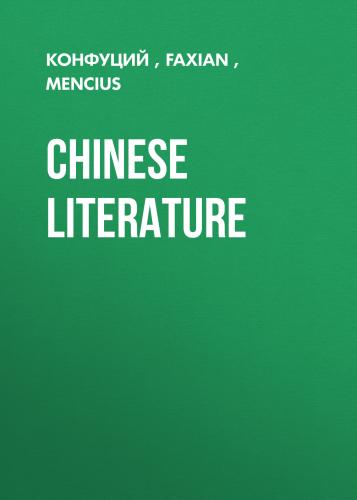These posturers were mutes who took part in the ritual of the ancestral temple, wa
1
An important part of a Chinaman's education still. The text-book, "The Li Ki," contains rules for behavior and propriety for the whole life, from the cradle to the grave.
2
Of Lu (Confucius's native State).
3
Head of one of the "Three Families" of Lu.
4
The Chief of the Ki clan was virtually the Duke of Lu, under whom Confucius for a time held office.
5
These posturers were mutes who took part in the ritual of the ancestral temple, waving plumes, flags, etc. Each line or rank of these contained eight men. Only in the sovereign's household should there have been eight lines of them; a ducal family like the Ki should have had but six lines; a great official had four, and one of lower grade two. These were the gradations marking the status of families, and Confucius's sense of propriety was offended at the Ki's usurping in this way the appearance of royalty.
6
Three great families related to each other, in whose hands the government of the State of Lu then was, and of which the Ki was the chief.
7
One of the five sacred mountains, worshipped upon only by the sovereign.
8
Tsou was Confucius's birthplace; his father was governor of the town.
9
A renowned statesman who flourished about two hundred years before Confucius's time. A philosophical work on law and government, said to have been written by him, is still extant. He was regarded as a sage by the people, but he lacked, in Confucius's eyes, the one thing needful—propriety.
10
Lit., a State of 1,000 war chariots.
11
Lit., a House of 100 war chariots.
12
A great statesman of Confucius's time.
13
A familiar way of speaking of his disciples in their hearing.
14
At this time Confucius was Criminal Judge in his native State of Lu. Yuen Sz had been a disciple. The commentators add that this was the officer's proper salary, and that he did wrong to refuse it.
15
The doctrine afterwards known by that name, and which gave its title to a Confucian treatise.
16
In reference to his editing the six Classics of his time.
17
This was one of his "beloved ancients," famous for what he did in helping to found the dynasty of Chow, a man of great political wisdom, a scholar also, and poet. It was the "dream" of Confucius's life to restore the country to the condition in which the Duke of Chow left it.
18
These were six in number, viz.Ceremonial, Music,
Archery, Horsemanship, Language, and Calculation.
19
Lit., three forces. Each force consisted of 12,500 men, and three of such forces were the equipment of a greater State.
20
Comparison of three of the Classicsthe "Shi-King," the
"Li Ki," and the "Yoh." The last is lost.
21
"Wan" was the honorary appellation of the great sage and ruler, whose praise is in the "Shi-King" as one of the founders of the Chow dynasty, and the term represented civic talent and virtues, as distinct from Wu, the martial talent—the latter being the honorary title of his son and successor. "Wan" also often stands for literature and polite accomplishments. Here Confucius simply means, "If you kill me, you kill a sage."
22
Because, it is said, such colors were adopted in fasting and mourning.
23
Because they did not belong to the five correct colors (viz. green, yellow, carnation, white, and black), and were affected more by females.
24
Since white was, as it is still, the mourning color.
25
The act of "grace," before eating.
26
The men of virtuous life were Yen Yuen (Hwúi), Min Tsz-k'ien, Yen Pihniu, and Chung-kung (Yen Yung); the speakers and debaters were Tsai Wo and Tsz-kung; the (capable) government servants were Yen Yu and Tsz-lu; the literary students, Tsz-yu and Tsz-hiá.
27
Lit., capped ones. At twenty they underwent the ceremony of capping, and were considered men.
28
I.e., before the altars, where offerings were placed with prayer for rain. A religious dance.
29
From Confucius, it is generally thought.
30
Confucius had now retired from office, and this incident occurred only two years before his death.
